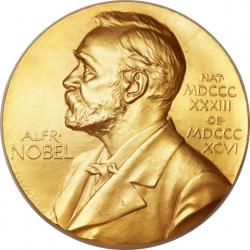The Nobel Prize in Economics Awarded for Work on Poverty

Abhijit Banerjee, Esther Duflo and Michael Kremer have won the Nobel Prize in Economics, the Royal Academy of Sciences said.
The trio was honored "for their experimental approach to alleviating global poverty," the jury said.
"This year, the laureates introduced a new approach to delivering credible results from the best ways to tackle global poverty," a statement from the Royal Swedish Academy of Sciences said in a statement.
French Esther Duflo of MIT becomes the second woman to receive this prestigious award. First in 2009 was American Elinor Ostrom for her analysis of economic governance: it showed that shared property, including resources, could be effectively managed by groups of people.
The prize was created by the Swedish State Bank in 1968 and does not count towards the top five prizes agreed to by Nobel in his will in 1895.
It is awarded annually by the Royal Academy of Sciences, with monetary compensation, as well as other premiums, of SEK 9 million (about $ 900,000).
The award is presented with the main prizes in Stockholm on December 10, the day of Alfred Nobel's death.
The Nobel Prize has been awarded since 1901 to the will of the industrialist and dynamic magnate Alfred Nobel. His quest to popularize the sciences and the advancement of humanity comes after his invention - dynamite used as a tool of war instead of his originally intended purpose of extraction.
The prize pool, about $ 900,000 in grants, is still largely funded by the wealth left behind.
- Log in to post comments
